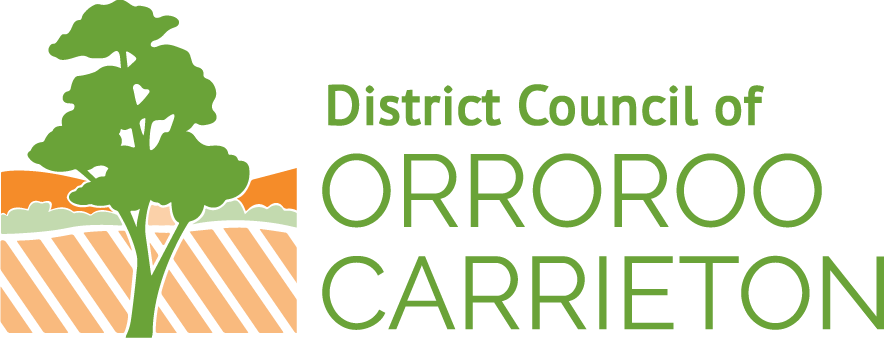Manufacturing Hub
Alongside a growing agricultural industry, the Orroroo and Carrieton region steadily gained a reputation as a thriving manufacturing hub – from flour mills to butter production, irrigation to farm machinery and equipment.
The Orroroo Flour Mill opened in 1879 to cater for increasing wheat-growing activities in the district, with capacity to mill up to 30,000 bags per year (over 3275 tonnes). Flour from the mill was distributed across the state and was noted for its fine quality. At the Sydney Exhibition, the Orroroo Flour Mill was awarded Champion prize against entries from across the world. The mill burnt down in 1945 and subsequently closed down. The mill was never rebuilt, and Pro. Motors garage was eventually built on the site.
With development of the Pekina Irrigation Scheme progressing, the Orroroo Butter Factory opened in 1907. It was one of the largest and best equipped outside of Adelaide. Producing up to 10 tonnes of butter each week, it also had one of the highest outputs in country areas. Butter was exported to London, however the majority went by rail to Broken Hill. In 1919, the factory which also manufactured ice, was acquired by South Australian Farmers’ Cooperative Union, later Farmers Union. The factory was destroyed by fire in 1920 and a new building, which still stands today, was built on the same site in 1921.
Under the Walloway brand, the business produced international award winning butter. Notably, in 1923, it took second prize at the London Dairy Show against 72 exhibitors. In 1924 the butter was honourably mentioned and in 1926 the factory gained second prize against 92 exhibitors. Dairy farming declined in the late 1960s, and the factory eventually closed in 1971.
One of the early businesses of Orroroo was the ‘Orroroo Agricultural Implement and Carriage Manufactory’ established by Richard Thomas Parnell. His success with hay trollies, sulkies, all types of buggies, wagons and drays was not only a saviour for locals, but was highly regarded throughout South Australia.
F. Forbes & Sons was recognised for the 'Forbes Plough', considered equivalent to any in the Commonwealth. The ploughs were sent in increasing numbers to New South Wales and Western Australia. Forbes also manufactured other horse-drawn vehicles including sulky’s, express buggies, Rosa buggies and dog carts.
With men of military age enlisting for service during World War One, the demand for farm implements lessened, while gradually machines replaced horses on farms and roads across the country. Over time, many of the old industrial buildings were demolished to make way for the modern shops we see today.
By the late sixties, Orroroo had three motor vehicle dealerships including farm machinery, two butchers, a bakery, cafes, grocers, two major banks and other sundry shops. A kangaroo processing plant became a major industry in the town and operated successfully for many years until closing down in 2021.
Although the manufacturing sector has declined in Orroroo, the community have a preparedness and enthusiasm to adapt and work together to create an optimistic future.
